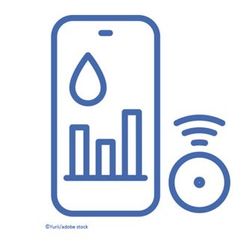© 2025 MJH Life Sciences™ , Patient Care Online – Primary Care News and Clinical Resources. All rights reserved.
High Blood Sugar Elevates Breast Cancer Risks
Outcomes are poorer for young women and others with breast cancer when blood sugar levels reflect prediabetes or undiagnosed diabetes. What can you do?
Higher blood sugar levels that reflect prediabetes or undiagnosed diabetes mellitus (DM) lead to poorer outcomes in patients with breast cancer, particularly in young women, according to the results of a new study.
“In younger patients, doctors need to be aggressive in controlling blood sugar levels to improve their breast cancer-related outcomes,” lead author Varinder Kaur, MD, a Fellow in Hematology/Oncology at the Winthrop P. Rockefeller Cancer Institute at the University of Arkansas in Little Rock, told ConsultantLive.
Multiple studies indicate that type 2 DM is associated with an increase in mortality in breast cancer. However, the class of anti-diabetic therapy remains an obvious confounding factor in these studies. Higher mortality rates have been reported in patients with breast cancer who are treated with insulin than in those treated with metformin. Choosing a population of patients with breast cancer who have prediabetes and are not receiving anti-diabetic therapy could overcome such confounders.
“We conducted a retrospective cohort study to evaluate the relationship between elevated random blood sugar (RBS) levels and breast cancer outcomes,” Dr Kaur said. The study included 234 patients, median age 53 years, who had no previous history of DM and who were not receiving any anti-diabetic therapy. Some 159 patients had a documented RBS level.
The patients had stage I-III breast cancer, mostly stage II disease (177 patients); 72 patients had elevated RBS levels (higher than 120 mg/dL) and 87 had RBS levels lower than 120 mg/dL.
The effect of elevated RBS levels on overall survival, event-free survival, and time to tumor recurrence were analyzed.
“We observed that patients with elevated random blood sugar levels experienced significantly shorter overall survival, shorter event-free survival, and shorter time to tumor recurrence,” Dr Kaur said. “After adjusting for age, obesity, and race, elevated random blood sugar levels continued to display a high and statistically significant association with shorter survival and time to tumor recurrence.”
In addition, among patients younger than 50 years, elevated RBS levels were associated with a significantly greater frequency of high-grade tumors (80%) compared with RBS levels below 120 mg/dL (45%), suggesting that “elevated random blood sugar levels may have more impact in younger patients,” she noted.
Metformin may help reduce the risk of breast cancer and more tightly control blood sugar levels, Dr Kaur said. This may improve outcomes more than if patients are receiving insulin. Metformin may be even more effective in younger patients. The risk of shorter survival and shorter time to tumor recurrence was more than twice as high in the 97 patients who were younger than 50 years than in the patients older than 50 years, she stated.
In conclusion, Dr Kaur said, “High random blood sugar levels, reflective of a prediabetic state or undiagnosed diabetic state, are associated with shorter overall survival and time to tumor recurrence in early-stage breast cancer patients. It makes sense to be aggressive and control their blood sugar.”
The researchers presented the results of the study (Abstract 1584) at the American Society of Clinical Oncology annual meeting in Chicago.



